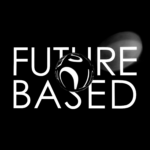Do I know myself through and through? Is there a clear distinction between myself and the other? Or am I always somewhat of a stranger to myself, while the other is strangely familiar? During the upcoming lecture, Femke van Hout will address these questions from the perspective of the philosophy of the body. In sixty minutes, she will discuss four thinkers and artists who challenge the Cartesian division between soul and body, self and other, inside and outside, familiar and strange. Are we not always a bit foreign to ourselves? And what would be the political and ethical consequences of this inherent strangeness within us?
Philosophers that will be discussed:
- René Descartes’ distinction between the body (res extensa) and the mind (res cogitans) as two different substances. How does this opposition of body and mind relate to Descartes’ thinking about the distinction between self and other, familiar and strange? And to what extent are aspects of Cartesian dualism still present in our modern society?
- Jean-Luc Nancy’s essay L’intrus (The intruder), a philosophical reflection on his own heart transplantation in which he uncovers the relentless uncanniness that pervades his post-transplant experience. Can he still draw a line between himself and the other, the foreign heart? Or might intrusion, or strangeness, lie at the core of who you are?
- Philosophical anthropologist Helmuth Plessner (1892-1985). According to Plessner, human beings both have and are a body. As we constantly have to renegotiate the balance between these two aspects of our embodied being, the distinction between what is own and strange to us is never left unchallenged.
- Claire Denis’ movie L’intrus, which is inspired by Jean-Luc Nancy’s eponymous essay. What consequences can the acknowledgement of the strangeness within ourselves have for the way in which we think about ourselves and others, about countries and borders, insiders and outsiders?
Femke van Hout is a research master student of Philosophy at the University of Amsterdam. She writes philosophical essays for UvA magazine Cimedart, has lectured at several events on topics such as strangeness, embodiment and death and has taught a course at the UvA on the philosophy of the body.
Why a lecture on the topic ‘the strange self’ right now?
In everyday life, a certain balance in the ambiguous experience of the body as a subject as well as an object has to be continuously upheld. This balance reveals itself in our both having and being a body. Or, in other words; the body that we have as an object, is at the same time something that we are as a subject. In these strange times we are reminded that our bodies are also an object; Just like all those other bodies, it will ultimately die and perish. In this sense, our body-as-object sometimes can feel as a prison where her ‘self’ cannot possibly be at home. Can we recognize something similar in experiences of illness and disease, which are also situations in which it can be difficult to reconcile ourselves with the thingness of the body? What can the philosophy of body teach us about the ‘boundaries’ of the self and the other?
Practical: When? The 10th of September 20:00 – 21:00 UTC Amsterdam. You will receive a ZOOM link before the start of the event.
The purpose of these webinars:
Future Based’s ‘Sixty minutes back to the Future’ series is a new series in which we reflect on the bottlenecks and challenges of today’s society, and contemporary issues that have already been addressed by numerous philosophers, artists and scientists: What can we learn about the future by looking at history?
The structure of the lectures is as follows: In sixty minutes, an artist, designer, researcher, or scientist talks about her/his field of work and what theories and thinkers have influenced their work. We will then reflect on how these theories, ways of thinking, and researches are relevant for understanding the state of today’s society, what we can learn from them about the ‘now,’ and why it is relevant to involve our past in our speculations about the future.
After 60 minutes, we will leave you on your own, with a head full of questions and the eagerness to go and conduct research yourselves. Luckily, you will receive access to a document with reading suggestions and relevant texts at the end of the lecture.
A note: In these times of challenges of all sorts, we need to lend each other a helping hand. That’s why Future Based organises these webinars on a non-profit basis. This means that ticket sales go directly to the artist, designer or scientist. (Future Based is not subsidized by any means.)
Banner: Dana Dijkgraaf / Text editor: Kees Muller
